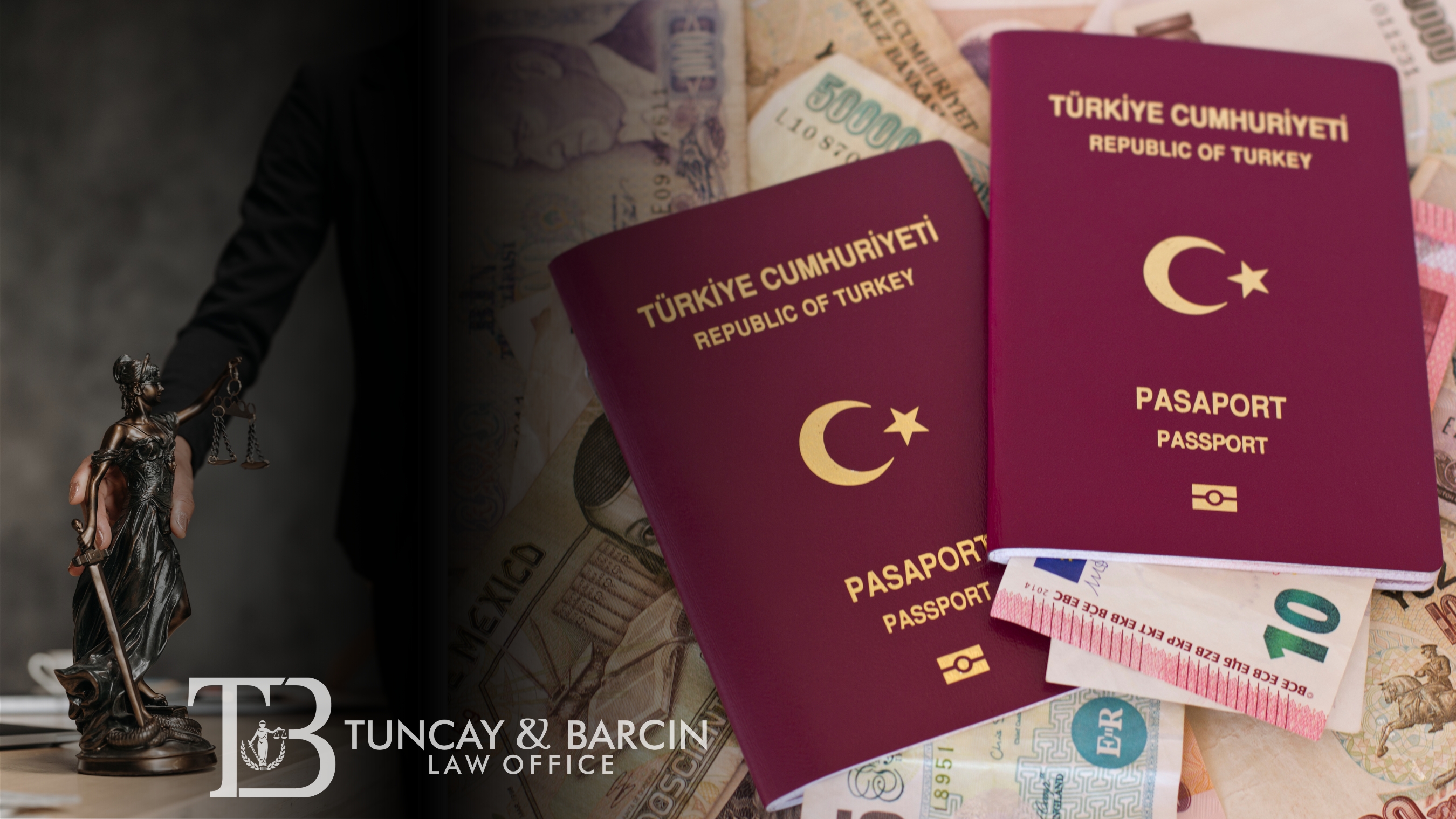Turkish Citizenship by Investment in 2025

Acquiring Turkish citizenship through investment (Citizenship by Investment, CBI) is not only a fast-track route to a new passport, but also an effective strategy for expanding personal and professional opportunities. Turkish citizenship offers visa-free or simplified access to 126 countries, a favorable tax system, high-quality healthcare and education, and the legal right to reside, work, and invest in one of the Mediterranean’s most dynamic real estate markets.
While the program may appear straightforward, it actually contains important legal nuances that are vital for a successful application. In many cases, misunderstanding these details is the main reason applications are rejected. This is why having the support of a law firm in Turkey is essential.
In this guide, we’ll break down everything you need to know about obtaining Turkish citizenship by investment in 2025 — including the key benefits, current investment options, step-by-step procedures, and the most common reasons applications are denied.
Benefits of Turkish Citizenship
Citizenship granted through Turkey’s investment program provides both the applicant and their immediate family with full constitutional rights, as well as extended access to social and economic benefits both within Turkey and internationally. Thanks to favorable laws and economic conditions, the Turkish passport has become one of the most appealing options in the global CBI market. Here are some of its most notable advantages:
Visa-Free Access to 120+ Countries
Turkish citizens enjoy visa-free, visa-on-arrival, or e-visa access to over 120 countries, including many in Asia, Latin America, the Caribbean, and parts of Africa and the Middle East. This is especially beneficial for international investors and frequent travelers. Turkey is also continuously negotiating new visa agreements to expand this list.
Schengen Zone Visas
Although Turkey is not part of the EU, Turkish citizens are eligible to apply for long-term, multi-entry Schengen visas — up to 5 years — thanks to a readmission agreement with the EU and ongoing visa liberalization talks. Turkish passports are often viewed as “trustworthy” by EU consulates, resulting in a relatively high approval rate.
U.S. Tourist and Business Visas
One major benefit is the ability to apply for a B1/B2 visa to the U.S. for up to 10 years. Additionally, Turkey is part of the E-2 visa treaty, which allows Turkish citizens to start a business in the U.S. and obtain a renewable, multi-entry visa for legal residence and business activities.
Return on Investment
A unique advantage of the Turkish CBI program is that the investor retains full ownership of the asset. In the case of real estate, the only requirement is that the property not be sold for three years. After that, it can be sold without affecting citizenship status, offering opportunities for rental income, capital gains, or resale.
Dual Citizenship
Turkey officially permits dual citizenship, so applicants do not need to renounce their original nationality. However, laws on dual citizenship also depend on the applicant's country of origin, so legal advice from both Turkish and domestic attorneys is highly recommended.
Citizenship for the Whole Family
The program allows the main applicant’s spouse and children under 18 to be included in the application — no separate naturalization procedures are required. This is particularly attractive for families seeking to relocate, educate their children abroad, or access healthcare and social benefits in Turkey.

Requirements for Turkish Citizenship in 2025
As of 2025, Turkish citizenship by investment is governed by Law No. 5901 and accompanying regulations. Several investment routes are available, each with specific requirements regarding the amount and duration of investment.
Real Estate Investment
Buying property is the most popular path. To qualify:
- Purchase real estate worth at least USD 400,000.
- Register the title (TAPU) in the applicant’s name.
- Commit to holding the property for a minimum of 3 years.
Other conditions include:
- Each property must have its own TAPU (title deed).
- Properties must be purchased from Turkish citizens or Turkish companies.
- Only one applicant can be listed per TAPU — co-ownership is not allowed.
- The property must not have been used previously for another CBI application.
- Properties from companies with over 50% foreign ownership are not eligible.
A certified property appraisal by an SPK-licensed expert is mandatory. Payment must go through a Turkish bank, with proper notation of the payment purpose and a DAB (currency exchange certificate). Eligible properties receive a Certificate of Conformity.
Business Investment
Applicants may also:
- Invest USD 500,000 in equity capital of a Turkish company.
- Provide documented proof of investment origin and capital injection.
- Meet economic viability checks, especially for sensitive sectors.
Alternatively, one can:
- Deposit USD 500,000 in a Turkish bank (locked for 3 years, interest remains accessible).
- Purchase government bonds worth USD 500,000 (also locked for 3 years).
- Invest in SPK-regulated real estate or venture capital funds (minimum USD 500,000 for 3 years).
Another route involves:
- Creating at least 50 jobs for Turkish citizens.
- Providing employment contracts, SGK registration, and financial records.
- Undergoing inspections by the Ministry of Labor.

How to get Turkish Passport
In 2025, the main applicant must:
- Be of legal age.
- Provide a clean criminal record.
- Not pose a security risk, as verified through interagency screening.
The program does not extend to:
- Parents or adult children (they may apply for a residence permit).
- Nationals of certain countries like Armenia, North Korea, Cuba, Syria, and Nigeria (due to geopolitical and migration risks).
Required Documents
Key documents include:
- Completed and signed citizenship application form.
- Valid passport and notarized copy.
- Birth certificates of the applicant and dependents.
- Biometric photos (5×6 cm).
- Copy of Turkish residence permit (ikamet).
- Police clearance from the country of residence.
- Marriage certificate and family status proof.
- Proof of medical insurance in Turkey.
- Government fee payment receipts.
- Proof of investment and certificate of eligibility.
All foreign documents must be apostilled, translated into Turkish, and notarized. Legal assistance is highly recommended to avoid errors and ensure a smooth process.
How to become a Turkish citizen: A Step-by-Step Guide
1. Initial Assessment & Strategy
Legal and financial due diligence is conducted to select the optimal investment route.
2. Document Preparation
Full application package is prepared, including notarized Turkish translations and supporting documents.
3. Apply for a Residence Permit
A short-term residence permit (1–2 years) is obtained for the applicant and family.
4. Citizenship Application
Once residence is granted and investment confirmed, the citizenship application is submitted to the Ministry of Interior. Final approval is issued by Presidential decree.
5. Issuance of Passport
The applicant receives a Turkish passport (Kimlik), finalizing the citizenship process.
Why Citizenship Applications Get Denied
While the Turkish citizenship by investment program is known for its transparency and relatively high approval rate, there are several clear reasons why an applicant might be denied legal status. Based on current regulations and real-world cases, the most common grounds for rejection include:
- Failure to meet investment requirements.
One of the core conditions of the program is strict compliance with the minimum investment threshold and related criteria. If the investment amount falls short or doesn’t meet the legal standards, the application will be rejected. Moreover, if the investment is withdrawn before the mandatory holding period ends, even an already issued passport may be revoked. - Incorrect documentation or incomplete application.
Submitting paperwork that is incorrectly filled out or missing required documents is a frequent cause of rejection. - Submission of unverified or falsified documents.
Providing fake or unverifiable documentation is a serious violation and results in immediate disqualification from the program. - Criminal record or national security concerns.
Applicants with unresolved criminal convictions — especially for crimes like terrorism, money laundering, or human trafficking — will be denied citizenship due to posing a risk to national security.

Other Citizenship by Investment Options in 2025
Countries besides Turkey offering CBI or residency options:
Greece (Golden Visa)
- Real estate from USD 250,000.
- Citizenship possible after 7 years of residence.
Egypt
- Non-refundable donation: from USD 200,000.
- Alternatives include deposits, real estate, or business investment.
St. Kitts & Nevis
- Donation from USD 250,000 or real estate from USD 325,000 (7-year hold).
Antigua & Barbuda
- Options: USD 230,000 donation, USD 300,000 real estate, or USD 400,000 business investment.
- Only 5 days’ residence required in 5 years.
Saint Lucia
- Options: USD 240,000 donation, USD 300,000 real estate, or bonds.
- Citizenship within 3–9 months, no residency required.
Frequently Asked Questions
Does Turkey allow multiple citizenship?
Yes. Turkish law allows dual citizenship, provided the applicant’s home country also permits it.
Can I buy property and get citizenship?
Yes, with real estate valued at USD 400,000 or more (cadastral value).
Does Turkey offer a Golden Visa?
Not in the classic sense, but its investment program provides both residence and citizenship pathways.
How much does Turkish citizenship cost?
At least USD 400,000 in real estate + legal, translation, and government fees.


